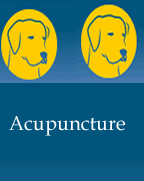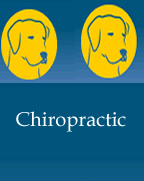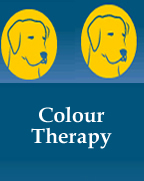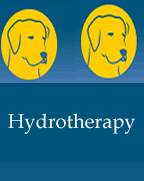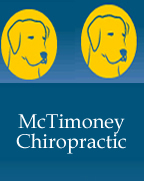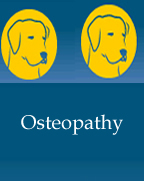Complementary Healthcare
There are many complementary therapies available - we have done our best to include the majority below.
There are many complementary therapies available - we have done our best to include the majority below.

When I was a child, the adults around me seemed to treat professional people, like doctors and vets, like gods. Their word was law, and there was a lot of bowing and scraping going on. I thought it was strange at the time, and now I know why.
Although it’s wonderful to have experts to call upon, people who can advise and help us to take the best care of our canine friends, I’ve learnt that it’s never a good idea to hand over your thinking mind in the process.
We need to remember that conventional vets are specialists. They are trained to diagnose illness, to prescribe and administer drugs, and to perform surgery. They know very little about nutrition or other preventative healthcare options. They’re trained to treat disease, and not to prevent disease.
Just think about this: for decades, dog owners have been advised by their vets to vaccinate their dogs every year – when there is no scientific justification for the practice. Annual shots are just not necessary, and they can be harmful. It was grieving dog owners, and not vets, who campaigned for the science to be heard, and even now that the true science is out there, many vets are still over-vaccinating. Doesn’t this illustrate how we need to be vigilant on our friends’ behalf?
Conventional veterinary science is but one specialisation. There are others.
If you had a painful back, would you go to a medical doctor, or to a chiropractor, Bowen therapist or osteopath? Hopefully, you’d appreciate that pain killing pills from the doctor wouldn’t necessarily resolve your spinal problem? Painkillers kill pain (hopefully); they don’t manipulate your spine to resolve the underlying problem.
Although it’s against the law in the UK for anyone to diagnose or treat an animal if they’re not a veterinarian, there are many complementary therapies which your vet may refer you to or – indeed – that your vet may practice.
In my life, I have used a variety of complementary therapies for my dogs. The foundation therapy is nutrition. You might be surprised to learn that the majority of illnesses that vets treat are diseases of malnutrition. Get the diet right, and your dog should rarely need to see a vet. I’ve also taken my dogs to see veterinary acupuncturists, chiropractors, homoeopaths, and radionics practitioners, and I’ve also used flower remedies, hands-on healing, herbs and Emotional Freedom Technique on my dogs. I have seen them produce powerful, positive, results.
There is no law to prevent you treating your own animal, and if you would like to take your dog to a trained specialist and your vet won’t refer you, there is no law to prevent you from changing to a vet who will refer you.
